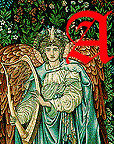
s Robert H. Ellison has pointed out elsewhere, Newman "was not what we would call a charismatic preacher; he kept his eyes fixed upon his manuscript, never moving, looking at his congregation, or varying the tone or inflection of his voice. . . . . [Nonetheless, he gained] a reputation as perhaps the most intellectually and spiritually gifted preacher of his day." Lawrence Poston quotes a description of his preaching by a contemporary, J. C. Shairp, who reports that Newman spoke without "vehemence," "declamation," or display of elaborate argument. According to Shairp, Newman had an unusual style of delivering his sermons that took some time to become used to: "Every separate sentence, or at least each short paragraph, was spoken rapidly, but with great clearness of intonation; and then at its close there was a pause, lasting for nearly half a minute. It took some time to get over this, but, that once done, the wonderful charm began to dwell upon you" (276-77; qtd Poston, 419).
This approach to delivering a sermon was not the result of a quest for novelty or a quirk of Newman's personality but result of a self-conscious, carefully thought-out theory of the relation of the peacher to his audience and of the place of the sermon in religious services. It is, above all, a double rejection of his earlier Evangelical belief. First, as he explained to George T. Edwards on April 15, 1883, the Evangelicals
have forgotten that the Cross of Christ is a "mystery," and to be treated with deep reverence. Instead of this, they call it a "manifestation" and flourish it about as a "plan," a "scheme," a great argument address to the world, and in itself exciting faith, the one instrument of God's grace, convincing, satisfying the reason, and therefore the means of conversion. [Letters and Diaries 30:412; qtd Poston, 412]
Second, Newman decries the emotionalism and self-display characteristic of Evangelical preaching within and without the Church. Poston points out that in an 1829 sermon, he argues that "preaching carries with it the temptation to curry the favor of one's auditors, to enhance one's reputation and character for 'ability or pre-eminent holiness'" (411). Newman, Poston explains, believed that preaching must be subordinate to "the ministration of the sacraments and the personal ministrations of the clergyman to his flock. At the heart of his argument is the Tractarian idea of personal holiness" (412). Citing Isaac Williams — author of both Tract 90 on reserve and The Cathedral, a volume of poems in emulation of George Herbert — Poston mentions the three marks of "holiness in life": "a modest retiring into the shade, an equal modesty in expression, and 'a self-denying and consistent performance of religious duties in secret'" (413).
Considered in relation to preaching, these basic Tractarian views reveal a deep suspicion of the supposedly beneficent powers of human language. Indeed, Newman and his associates sincerely believed that the sight of a devout clergyman praying or carrying out his duties inside and outside his church had more effect than did any sermon. Perhaps surprisingly, Newman's Tractarian attitudes toward preaching come very close to Thomas Carlyle's suspicions of the value of language and corollary emphasis upon the exemplary value of the Hero in society. Essentially, both men famous for their eloquence and individual styles of expression remain deeply skeptical about the value of the language; both men find great value in quietly carrying out one's duties; and both believe that exemplary men and their actions — neither had much interest in the possible spiritual power of women — have more importance than language. Carlyle, of course, spent his life looking for men worthy enough to be true heroes, and although he found some in the past, none of them, not even Cromwell and Friedrich, finally seemed adequate. Newman, in contrast, had Christ as Hero.
References and Additional Reading
Poston, Lawrence. "Newman's Tractarian Homiletics." Anglican Theological Review. 87 (2005): 399-421.
Shairp, J. C. Studies in Poetry and Philosophy. (1868) Reprint: Port Washington, NY: Kennikat Press, 1970.
Turner, Frank. John Henry Newman: The Challenge to Evangelical Religion. New Haven: Yale UP, 2002.
Related Materials
Last modified 18 October 2005